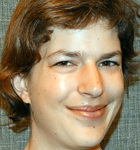 Research Associate in Environmental History, Comparing the Copperbelt project (Jan 17-Aug 19)
Research Associate in Environmental History, Comparing the Copperbelt project (Jan 17-Aug 19)
My interest in African history gradually developed during my BA in history at Leiden University in the Netherlands. During his courses, Prof. Robert Ross managed to make crop domestication in Ethiopia sound extremely exciting. He gave me the confidence to pursue African history further. Before I enrolled in the MPhil in African Studies, an interdisciplinary masters programme covering a range of approaches from anthropology and geography to statistics and history, I spent a summer working as a sports volunteer in Livingstone, Zambia. When choosing a thesis topic, I entered Prof. Jan-Bart Gewald’s office saying I wanted to do something with agricultural history in Zambia. He proposed Mwinilunga District in the North-Western Province and – although I had never heard of the place – that thesis and the six months of research spent in Lusaka and Mwinilunga turned out to be hugely important.
After writing my thesis, I got the opportunity to pursue a PhD on the social history of Mwinilunga District from 1870-1970. I studied aspects of agricultural production, labour migration, cross-border mobility, patterns of consumption and general processes of social change. I spent a total of 12 months in Zambia and next to archival research I conducted oral history and ethnographic research in Mwinilunga District. Riding my bicycle through the district, learning how to speak Lunda and understand ‘deep Lunda’ culture was a privilege. The broader project of which my PhD was part (‘From Muskets to Nokias: A History of Consumption and Social Change in Central Africa) introduced me to numerous Zambian and Congolese scholars and resulted in the publication of a number of edited volumes (Transforming Innovations in Africa, 2012, and The Objects of Life in Central Africa, 2013). After my PhD I worked as a post-doc researcher for the Centre for Frugal Innovations in Africa, which took me back to the Zambian Copperbelt for research into mobile money and improved cook stoves.
The ‘Comparing the Copperbelt’ research project will allow me to more fully explore the connections between Zambia and Congo, which had become evident during my PhD research. I am extremely excited to explore topics in environmental history, which can illustrate the porosity of borders and the (ir)relevance of rural-urban distinctions. Next to research about the influence of mining on the natural environment (including topics such as pollution, but also mine companies’ perceptions of the environment) I will also engage a broader conception of environmental history. How was mining activity related to agricultural production and forestry in this quintessentially urban area, for example? How did urban agriculture challenge the ‘urban’ and ‘mining’ image of the Copperbelt? The answer to these questions might upset some existing conceptions of the Copperbelt region. I look forward to being part of this project and entering the field of environmental history.
